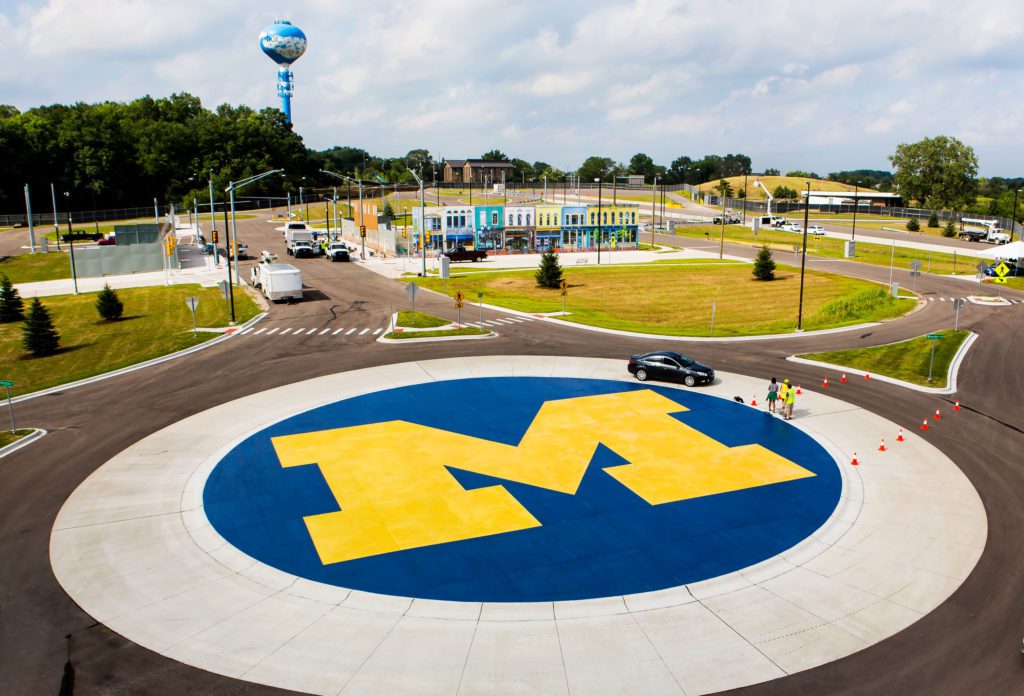NEXUS NEWS
connected & automated vehicles spotlight: Alicia Ludwig
August 30, 2023
by Britney Rivers
Alicia Ludwig is a future portfolio and strategy manager in the automotive and mobility industry. She primarily handles the strategic planning for products in Africa and the Middle East. Five years ago, she transitioned from a public relations career into technology and mobility. Alicia attended the Connected and Automated Vehicles course in October 2022 to enhance her skills in the field.

WHY DID YOU DECIDE TO TAKE THE CONNECTED & AUTOMATED VEHICLES CERTIFICATE COURSE?
Alicia: I was interested in the course because I wanted an opportunity to learn more about automated vehicle technology. I needed to understand where we are today, what technology already exists, and how to advance in the industry. As I don’t have an engineering background, I signed up for the course to gain this technical insight.
Technology has opened doors for interacting with people all over the world. Mobility is a major part of that. There is plenty of information to discover about self-driving cars and the risks and benefits of this emerging technology, but I wanted to ensure I could distinguish opinion from reality.
Our company has potential growth opportunities in the industry. It’s important to prioritize connecting with and making an impact on our customers’ lives in the process. As part of crafting this journey, I wanted a comprehensive introduction to industry-specific topics.
WHAT WAS THE MOST VALUABLE OR IMPACTFUL ASPECT OF THE COURSE FOR YOU?
Alicia: The knowledge that every instructor shared was one of the most beneficial aspects of the course. The instructors thoroughly explained and provided examples to the participants who did not have a background in engineering, technology, or cybersecurity. They were also honest about the challenges and risks within their fields.
One of my favorite topics of the program was the lesson on human behavioral factors in connected vehicles. We delved into how customers would interact with an automated vehicle and how to make said connectivity seamless. One should think critically about certain factors such as safety, the environment, language barriers, and alert systems.
Working in a region as diverse as the Middle East, you need to be aware of multiple languages, cultures, and backgrounds to be successful with CAV technology. In addition to providing technical knowledge, the course broadened my ability to look at all the different factors to build a strong road map for the future.
WERE THERE ANY ASPECTS OF THE COURSE THAT YOU FOUND CHALLENGING?
Alicia: That would be cybersecurity. There are many technical elements in cybersecurity and it’s a critical part of automated vehicle technology. Cybersecurity is a big concern for customers globally. Our role is to ensure customers receive the benefits of vehicle connectivity, while, simultaneously, safeguarding that our vehicles are protecting customers’ private data and information.
The instructor who led the session did a great job explaining complex cybersecurity topics and engaged with us to find solutions for the issues that could arise from autonomous vehicle technology.
INTERACTIVE TOURS TO WORLD-CLASS TESTING FACILITIES
The course participants visited Mcity and the University of Michigan Transportation Research Institute. The tours to the facilities allowed learners to experience the latest automated vehicle innovations in real-time. Participants explored the various research projects and analysis testing that researchers conducted. Alicia recollected her experience visiting the world-renowned facilities:

Alicia: The visit to UMTRI and Mcity was a highlight for me. I gained insight into how researchers utilized CAV technology and why they were conducting certain tests.
I particularly recall the work on the inclusivity and safety aspects of automated vehicles; Researchers were studying the compatibility between wheelchairs and self-driving cars. It is crucial to bring in perspectives from everyone, considering, for example, what accessibility and freedom meant to people who may not have the ability to drive a car.
Automated testing sites are rare, so it was fascinating to experience it. I experienced first-hand how virtual reality and realistic testing can be utilized to get autonomous technology to the public faster.
WOULD YOU RECOMMEND THIS COURSE TO COLLEAGUES? WHY OR WHY NOT?
Alicia: Absolutely. If learners have the means to travel to Ann Arbor, I would definitely recommend this program. There is a lot of wonderful information to learn from this course. The biggest benefit was that I was able to attend in person.
I engaged with the instructors and my peers. We were all involved in the industry but served in different roles. I met city planners, civil engineers, lawyers, and supply chain & logistics leads who were looking to implement automated vehicle technology into their communities. The diverse background of the class led to interesting discussions about goals, solutions, and roadblocks of automated vehicles.
WOULD YOU LIKE TO SHARE ANYTHING ELSE ABOUT YOUR EXPERIENCE WITH THE CONNECTED & AUTOMATED VEHICLES COURSE?
Alicia: When we refer to professional development, we always tend to prioritize on-the-job training. However, participating in external courses provides us the opportunity to challenge ourselves to learn skills beyond our daily work responsibilities, and grow further in our careers.
There is value in taking an academic course such as Connected and Automated Vehicles. It’s essential to grow your industry knowledge and continue to become experts in the field by learning from other experts.